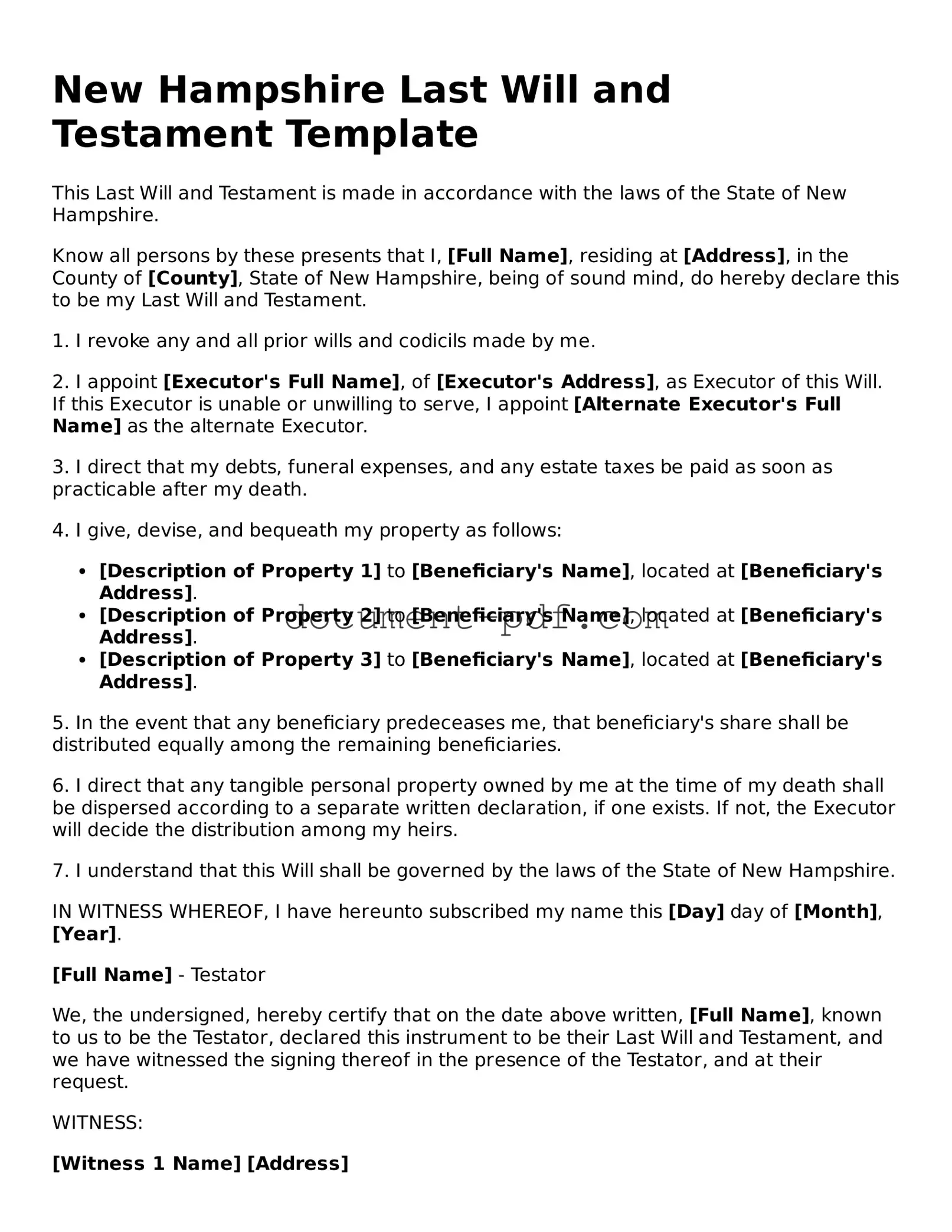Attorney-Verified New Hampshire Last Will and Testament Template
A New Hampshire Last Will and Testament form is a legal document that outlines how a person's assets and affairs should be managed after their death. This form ensures that your wishes are honored and provides clarity for your loved ones during a difficult time. To get started on securing your legacy, fill out the form by clicking the button below.
Access Last Will and Testament Editor Here

Attorney-Verified New Hampshire Last Will and Testament Template
Access Last Will and Testament Editor Here
Finish the form without slowing down
Edit your Last Will and Testament online and download the finished file.
Access Last Will and Testament Editor Here
or
Click for PDF Form
